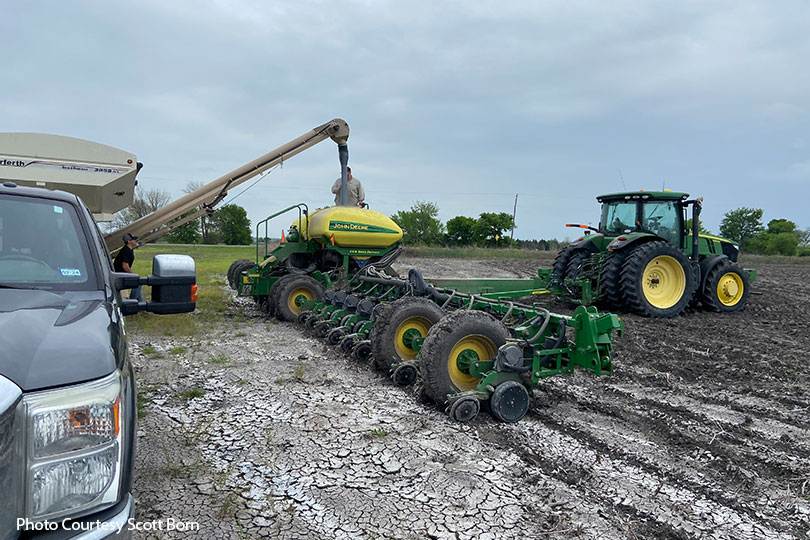By Shelby Shank
Field Editor
Texas farmers have had an uphill battle this spring getting crops planted.
While one farmer is praying for rain, another is asking for the rain to stop.
Scott Born grew up in the Texas Panhandle and now farms in Ellis County where he grows wheat, cotton, corn and sunflowers.
The 2023 planting season has been steady for Born.
“We started trying to plant corn at the end of February. We planted a couple of days, and then it rained. That held us out for a bit. It’s rained about every Thursday for the past six weeks around here this year,” Born said.
After last year’s devastating drought, the rains are welcome. But the increased rainfall is keeping some farmers, like Born, temporarily out of the field.
This year, Born is planting more corn because it was too wet to plant most of his wheat. Born normally plants 1,400 to 1,700 acres of wheat, but he was only able to plant about 400 acres this year.
“We’ve got adequate soil moisture in this area. It hasn’t been like we’ve had a bunch of five-inch floating rains like some years,” Born said. “It’s just we’ve been kind of regularly getting a half inch or inch every week, and it’s kept it wet to where we can’t really do anything. But I’d say, overall, I think the soil moisture and the sub-soil moisture’s probably pretty good.”
The shift to plant more corn presented its challenges, too. Born said it was difficult to run both of his planters at the same time because of the limited amount of dry spots in the fields.
He also started planting cotton in April and will be planting sunflowers this spring.
While North Texas farmers struggled to plant, those in West Texas need the rain.
“Anytime I talk to my friends in West Texas, they’re like, ’We’d take some of the rain. If you get too much, we’ll have some of it,’” Born said. “Most any kind of weather extreme is probably not good for farming. It needs to be balanced—not too hot, not too cold, not too wet and not too dry.”
But he remains optimistic for the year.
Born predicts wheat harvest won’t take long for him because he didn’t plant as many acres. However, he said he’ll be busier than usual harvesting his spring crops in the fall.
“Having a lot of extra acres in one crop, makes it harder to get everything done at the right moment,” Born said. “Because the machinery has to cooperate, the weather has to cooperate, you have to have enough machinery, you have to have enough labor. So, I think that’s probably the challenge this year. It’s just trying to handle more acres of spring crops.”

